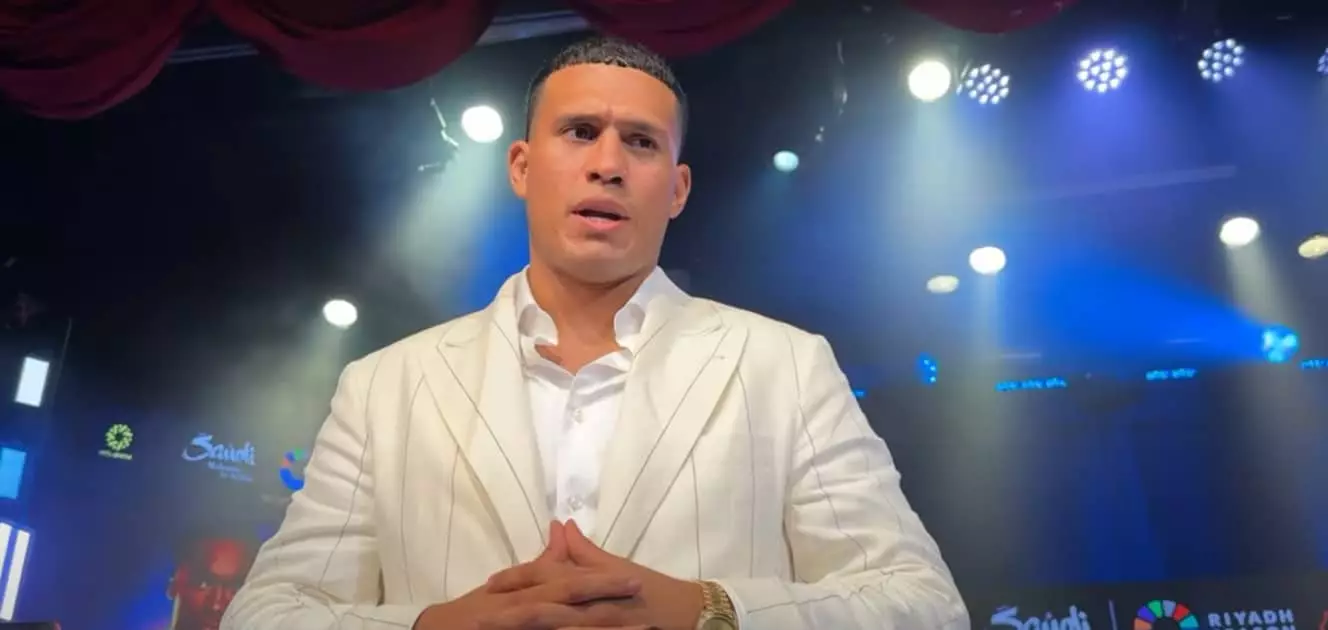David Benavidez, a formidable force in the light heavyweight division, faces a pivotal moment in his career. As the reigning WBC champion, his hunger for dominance remains unquenchable, but recent insights suggest he is contemplating a subtle yet significant evolution in his fighting approach. Recognizing vulnerabilities exposed in recent matches, Benavidez aims to incorporate more calculated body shots into his arsenal, transforming his relentless pressure into a more diverse and potentially more destructive attack. This adjustment signifies not just a tactical tweak but represents a deeper understanding that to impose his will consistently, he must adapt rather than rely solely on brute force.
The proposed focus on body shots signifies a matured fighter who understands that versatility and adaptability are paramount in today’s fiercely competitive boxing landscape. By targeting the opponent’s midsection, Benavidez hopes to weaken Anthony Yarde’s stamina early, forcing him into mistakes and wearing him down faster—an approach that could grant him a decisive advantage. This strategic shift underscores a vital lesson for fighters: evolution is necessary, particularly when facing opponents who are equally skilled or possess unique strengths.
Challenging Expectations: The Reality Behind the Yarde Fight
Many boxing analysts and fans have questioned whether this upcoming fight genuinely aligns with Benavidez’s championship aspirations. There’s a prevailing notion that his path toward boxing greatness is obstructed by more high-profile fighters, notably Dmitry Bivol. The reality is that Bivol’s avoidance of Benavidez highlights a critical aspect of modern boxing politics—the avoidance of risky matchups that could tarnish a fighter’s reputation or earnings. Bivol, enjoying considerable financial success, arguably avoids Benavidez not because of inability but because stylistically, the fight poses challenges for him.
This creates a perception that Benavidez is fighting inferior opposition, notably Yarde, in a bid to maintain his undefeated record and status. Yet, this perspective misses the broader picture: Benavidez’s willingness to accept challenging fights, even if they seem convenient or less glamorous, exemplifies his desire to cement a legacy rooted in resilience and adaptability. The fact that fighters like Callum Smith shy away from confronting “The Mexican Monster” illustrates the dangerous reputation Benavidez has built, one that deters others from risking Valiant battles.
Lessons Learned: The Danger of Relying on Power and Headshots Alone
Benavidez’s recent bouts, especially against David Morrell and Oleksandr Gvozdyk, serve as cautionary tales about the perils of over-relying on headhunting. His focus on rapid-fire headshots, though effective at times, also exposed vulnerabilities—getting dropped or hurt when his defenses slipped. Tiredness and overextension led to moments of peril, especially in the later rounds. His performance reveals a fundamental truth: without a balanced attack, even powerful fighters can be at risk of capitalizing on openings.
This introspection is what makes the possible integration of body shots so compelling. It’s a move away from predictable boxing toward a more nuanced, layered approach. While some critics might argue that adding body work could leave him exposed or weaken his stamina—given his recent fatigue—the potential payoffs outweigh the risks. In combat sports, the ability to diversify attack options often correlates directly with long-term success, especially when facing intelligent opponents who can adapt and counter predictable strategies.
Champion’s Mentality: Redefining How Champions Win
Benavidez’s declaration of intent to prove he is the best in the world extends beyond mere rhetoric. It embodies a profound belief in continuous self-improvement and strategic innovation. His acknowledgment of Yarde’s respect and the expectation of an aggressive approach indicates a confidence rooted in preparation and adaptability. He recognizes that to surpass his competitors, he cannot afford to be one-dimensional or predictable.
The story of Benavidez isn’t just about raw power; it exemplifies the evolving nature of modern boxing, where cerebral strategies and tactical diversity are crucial. His willingness to modify his style, to incorporate and perfect body shots, signals a maturing mindset—one that values long-term greatness over short-term victories. The challenge now lies in executing this approach without exposing himself to unnecessary risks, highlighting the delicate balance every elite fighter must navigate.
Ultimately, Benavidez’s journey reflects a fundamental truth about martial arts: success hinges on constant adaptation, relentless self-analysis, and the courage to evolve beyond one’s comfort zone. His upcoming fight against Yarde could very well serve as a turning point—either reinforcing his reputation as an adaptable champion or exposing vulnerabilities that critics will highlight. In either case, his willingness to critique himself critically is a testament to a fighter striving not just for victory, but for legacy.

